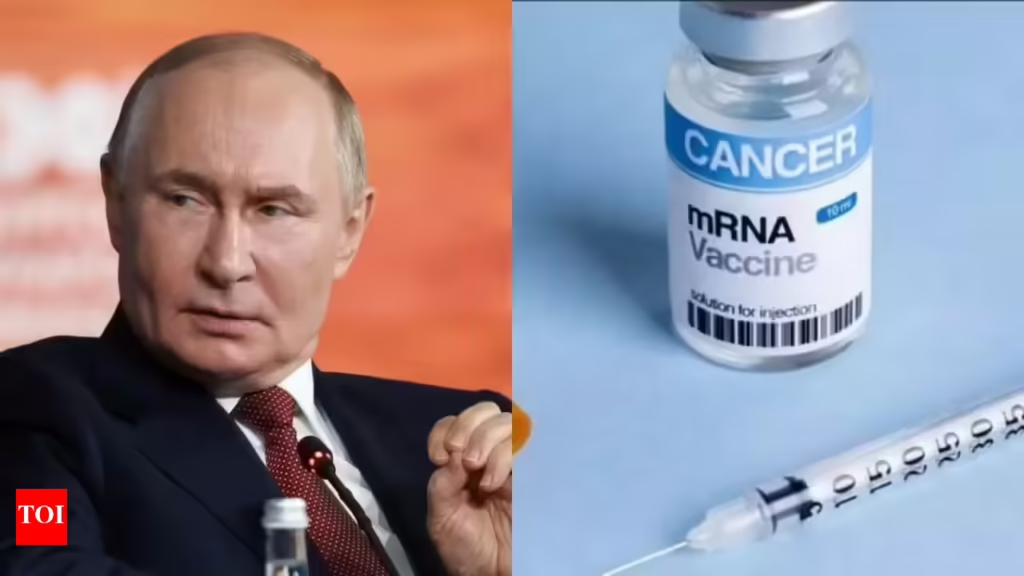Russia has just progressed well in the worldwide battle against cancer with Enteromix, a revolutionary mRNA-based cancer vaccine, showing promising early results. The vaccine was developed in collaboration by some of Russia’s leading medical research institutions, has shown 100% safety and up to an 80% reduction of the tumor or slowed progression (in the case of patients with colorectal cancers) in early trials. Enteromix is a landmark in the personalized cancer treatment space and represents a new development in cancer immunotherapy. For the first time, individual therapies could become personal with laboratory precision and few side effects.
Enteromix is based on messenger RNA (mRNA) technology that was utilized in the development of COVID-19 vaccines and can be applied for targeted cancer therapy. Traditionally in cancer therapy (e.g. chemotherapy, radiation therapy) cancer therapies can potentially damage healthy cells in the process of eliminating cancer cells, which results in expensive and intense side effects. Enteromix develops a personalized cancer cell vaccine by creating RNA material from a patient’s tumor. Thus, Enteromix has the capability to train the immune system to recognize the cancer cells and prop up the healthy tissues at the same time.
Four non-harmful viruses are blended together as part of Enteromix’s intentional development, which safely stimulates an immune response of greater efficacy.
The Federal Medical and Biological Agency of Russia (FMBA) stated that preliminary tests on 48 volunteers produced a significant immune response and did not produce any serious adverse effects. Tumours grew or grew more slowly by 60 to 80 percent, and exhibited no toxicity even at multiple doses. FMBA chief Veronika Skvortsova at the 10th Eastern Economic Forum in Vladivostok revealed that Enteromix is safe and can offer a personalized replacement to existing cancer therapies, and confirmed that the vaccine has received FMBA’s attention and is now subject to formal regulations for consideration for clinical use in Russia.
Although the initial focus of Enteromix is on colorectal cancer, Russian researchers are already pursuing expansion to other aggressive cancer sites including glioblastoma (a fast-growing and difficult brain tumor to treat) as well as melanoma that also includes rarer types, such as ocular melanoma. Finally, if all goes well, Enteromix could be a form of cancer immunotherapy to be used for not only one type of cancer but multiple aggressive cancer types, where a patient would receive a vaccine relative to their cancer’s genotype. Based on what we’ve learned, Enteromix could be one of the first truly personalized mRNA cancer vaccines with the potential for global use. The science behind Enteromix is novel and promising. The vaccine does not just target generic cancer cells, it uses the unique RNA signature of each individual patient’s tumor to provide a personalized chart for the immune system to follow. This precision lowers side-effect risk and improves efficacy. Personalization also makes this approach less inhumane than traditional chemotherapy or radiation treatment, granting cancer patients a better quality of life while on treatment.
While the news is certainly exciting, many experts advocate caution at this stage. Preliminary findings, while exciting, are not final. Medical leaders from international regions have called for larger clinical trials, covering more patients are required to draw firmer conclusions. Some have urged peer-reviewed studies at a minimum, & international collaboration before a vaccine is universally released into cancer care. Collaborative transparency, on trials & data sharing, will be critical for global trust in this breakthrough.
From a global health perspective, if not a Russian ‘feat’, Enteromix can be viewed as part of a growing movement to provide personalized medicine, and next-generation cancer vaccines. With the increase in directionally cancer cases all over the world—in countries like India, and the vast majority of which are now middle income—the opportunity for a safe, personal, effective and affordable cancer vaccine is now more pressing than ever. If Enteromix continues with positive results, it represents a potential innovative cancer model, preventive cancer care, translatable to avoid a greater burden on both Canadian, and international healthcare systems.
As regulators prepare for decisions that could change the future of colorectal care, the world watches. Enteromix could continue ‘to be’ current established care for colorectal cancer (and /or) progress to be an advancement in therapy for immunotherapy worthy of expanding to glioblastoma and melanoma. Either way, Enteromix has started ‘in motion’ of proving paucity of data for the hand-in-hand future for precision, personalization and safety won’t go away from the conversation about the future of cancer immunotherapy.












More Stories
Centre Steps Up Health Response: States, UTs Asked to Strengthen Clinics for Air Pollution-Related Diseases
Neurologist Warns: These 3 Everyday Habits Could Be Silently Damaging Your Brain
Fitness Trainer Reveals the Body’s Most Underrated Weapon Against Diabetes—‘Muscle Can Soak Up Glucose Even Without Insulin’